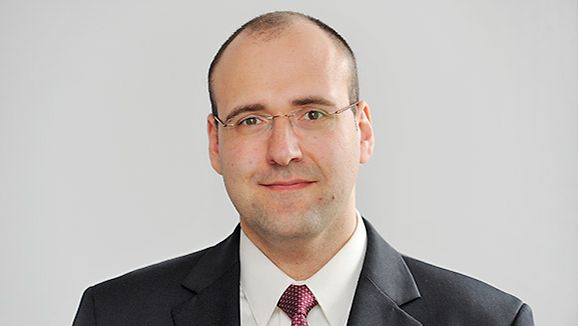Germany FDI
Asian Investors Favor Germany as a Business Hub
Companies from the Asia-Pacific region are increasingly investing in Germany. In 2023, there were more than 330 projects leading to new locations or expansions of existing sites.
Aug 08, 2024
From Thomas Bozoyan, Markus Wiencke | Berlin
In 2023, Germany Trade and Invest and the investment promotion agencies of the 16 federal states recorded more than 1,750 new foreign greenfield or expansion investments, excluding mergers and acquisitions, with a total volume of EUR 34.8 billion. Of this number, 336 projects originated from the Asia-Pacific region - equivalent to a 19 percent share of all business investments in Germany.
In the ranking of regions of origin, that puts Asia-Pacific is in third place after the EU and other European countries. With 200 projects, China is the most important Asian investor in Germany. Japan follows with 36 projects, India with 33 projects, South Korea with 22 projects, Singapore with 17 projects, Taiwan with 13 projects, and Australia with 10 projects. A further five projects were recorded from New Zealand, Malaysia, Thailand, and Vietnam.
Following the decline during the Covid-19 pandemic to 265 projects in 2021 and 272 projects in 2022 (14.7% and 15.3% of total projects respectively), expansions have consolidated again.
With 90 projects, the largest focus of investment was on electronics and automation (27%), followed by 70 projects in the fields of energy and resources (21%) and mobility and logistics (17%). This was followed by the digitalization sector with 34 projects (10%) and healthcare and life sciences with 17 projects (8%). The other 59 projects (17%) were distributed across various sectors.
Forty-three percent of the investing companies opened sales and marketing or support offices. Twenty-three percent of investors manufacture products and/or carry out research and development activities in Germany.
According to fDi Markets of the Financial Times, the largest Asian investment in 2023 came from Singapore. VIRTUS Data Centres built a data center in Brandenburg with an investment volume of EUR 3 billion. At the end of 2022, Taiwan Semiconductor Manufacturing in Saxony began investing up to EUR 10 billion in its first European chip factory. The plan is to create 2,000 new jobs in Germany.
| Investing Company | Source Country | Destination City | Sector | Capital Investment (Mio Euro) |
|---|---|---|---|---|
| Taiwan Semiconductor Manufacturing | Taiwan | Dresden | Semiconductors | 10,000 |
| VIRTUS Data Centres | Singapore | Wustermark | Communications | 3,000 |
| Daiichi Sankyo Company | Japan | Pfaffenhofen | Pharmaceuticals | 1,000 |
| Botree Cycling | China | Guben | Electronic components | 100 |
| Pure Battery Technologies | Australia | Hagen | Metals | 74 |
| LMG Manufacturing | India | Hoym | Metals | 50 |
| Takeda GmbH | Japan | Singen | Pharmaceuticals | 50 |
| Sungeel Hitech | South Korea | Gera | Electronic components | 45 |
| Vulcan Energy Resources | Australia | Landau in der Pfalz | Chemicals | 40 |
| Kyocera Fine Ceramics | Japan | Mannheim und Selb | Ceramics & glass | 34 |
| Hitachi Energy | Japan | Bad Honnef | Electronic components | 30 |
| Novelis | India | Plettenberg | Metals | 28 |
| Takasago Europe | Japan | Zulpich | Chemicals | 15 |
| Ayanda | China | Pritzwalk | Pharmaceuticals | 15 |
In the same year, the Japanese Daikin Europe Group made a significant expansion investment in Baden-Württemberg, creating 500 jobs in the area of ventilation, heating, air conditioning, and commercial refrigeration equipment manufacturing. This was followed the next year by a further investment that will create 200 new jobs in sales, marketing and support. Australian company Biovis Diagnostik MVZ plans to create 220 new jobs with research and development in the biotechnology sector in Hesse.
The establishment of the Taiwan Semiconductor Manufacturing Company in Dresden is a good example of a major project currently attracting further investment from supplier companies from Asian countries. Supported by the EU Chips Act and together with Bosch, Infineon and NXP, an ecosystem for the European semiconductor industry is being created to produce chips for the automotive and industrial sector in this region.
Potential for More Greenfield Investments from Asia
The German government has set its sights on making the German economy climate neutral by 2045, with the country is in the middle of a transformation process to achieve this goal. Renewable energies already account for 50 percent of total electricity consumption in Germany today. Legal mandates are in place to increase this share to up to 80 percent by 2030. Germany’s markets for solar energy (capacity will rise from about 90 GW today to 215 GW by 2030) and wind energy (installation of 115 GW of onshore wind energy and 30 GW of offshore wind energy by 2030) are undergoing enormous growth.
The green revolution in Germany is not limited to renewable energies. It also extends to areas such as energy efficiency, heating technologies, hydrogen, smart city and smart home solutions and, of course, the circular economy. There is great potential for smart cleantech companies from Singapore (an emerging hotspot for cleantech innovation) and Southeast Asia to play an active role in the transformation toward climate neutrality in Germany. In Germany, there are already around 480 companies with a total of around 11,500 employees whose majority owner is from Singapore.
Malaysia, Indonesia and Vietnam have growing manufacturing sectors with companies from the consumer goods, electronics, automotive, and machinery and equipment industries, that are increasingly focusing on internationalization. Between 2015 and 2023, companies from Singapore, Indonesia, Malaysia and Vietnam have already implemented 101 FDI projects in Germany.
Germany continues to be perceived positively abroad as an investment location. In the latest “FDI Confidence Index” published by consultants Kearney, Germany ranks fifth worldwide behind the USA, Canada, China and the UK.


